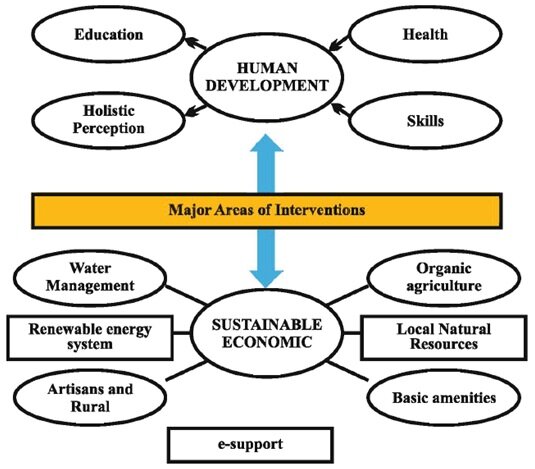Important Facts For Prelims
Important Facts For Prelims (4th May 2019)
- 04 May 2019
- 4 min read
Unnat Bharat Abhiyan
- Common Service Centre’s (CSC) e-Governance Services India Limited, under the Ministry of Electronics & IT, has tied up with IIT-Kanpur to upscale ‘Unnat Bharat Abhiyan’.
- IIT-Kanpur has brought together 15 leading higher education institutions from Uttar Pradesh to work with CSC for the development of villages under the Unnat Bharat Abhiyan scheme.
- These institutions will adopt gram panchayats and equip them with all citizen centric services through CSCs.
- ‘Unnat Bharat Abhiyan’ is an initiative of the Ministry of Human Resource Development (MHRD). Its 2.0 version was launched in the year 2018.
- It aims to create a vibrant relationship between the society and the higher educational institutions, with the latter providing the knowledge and technology support to improve livelihoods in rural areas and to upgrade the capabilities of both the public and private organizations in the society.
- It covers two major domains for holistic development of villages – human development and material (economic) development - in an integrated way.
- Institutes through their faculty and students carry out studies of living conditions in the adopted villages, assess the local problems and needs and thus accordingly prepare a workable action plan.
Common Service Centres (CSCs)
- The CSC is a strategic cornerstone of the National e-Governance Plan (NeGP), approved by the Government in May 2006, as part of its commitment in the National Common Minimum Programme to introduce e-governance on a massive scale.
- The objective of CSCs is to provide high quality and cost-effective video, voice and data content and services, in the areas of e-governance, education, health, telemedicine, entertainment as well as other private services.
- A highlight of the CSCs is that it offers web-enabled e-governance services in rural areas, including application forms, certificates, and utility payments such as electricity, telephone and water bills.
Centre of Excellence for Waste to Wealth Technologies
- The Office of the Principal Scientific Adviser (PSA) to the Government of India and the IIT Delhi have signed a Memorandum of Understanding (MoU) for setting up a Centre of Excellence for Waste to Wealth Technologies for implementation of sustainable, scientific and technological solutions for waste management.
- The long-term goal is to create circular economic models for waste management, by leveraging big data analytics and frontier technologies to streamline waste in India.
- The overall outcomes would involve treating waste and generating different forms of energy, thereby making India a waste free nation, with zero greenhouse gas emission and no health hazard.
Office of the Principal Scientific Adviser (PSA) to the Government of India
- India has had a Principal Scientific Adviser (PSA) since 1999. Dr. A.P.J. Abdul Kalam was the first PSA from 1999-2001 and Dr. R. Chidambaram from 2001-2018. Professor K. Vijay Raghavan succeeded Dr. Chidambaram on 3rd April 2018.
- The Prime Minister's Science, Technology and Innovation Advisory Council (PM-STIAC) is an overarching Council that facilitates the PSA’s Office to assess the status in specific science and technology domains, comprehend challenges in hand, formulate specific interventions, develop a futuristic roadmap and advise the Prime Minister accordingly.







